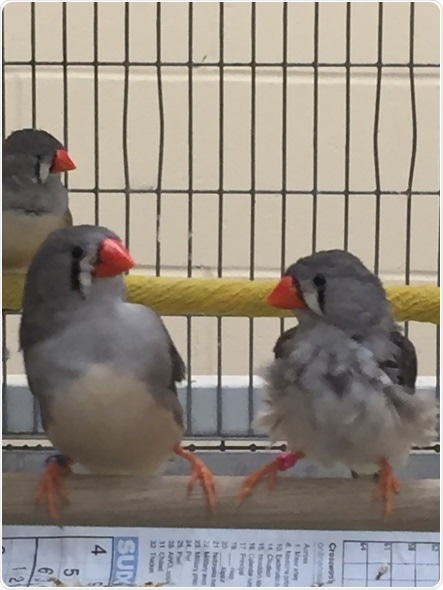Sep 24 2018
Noticing that songbirds, such as finches, never seem to get fat despite overeating at bird feeders, London environmental biologist Lewis Halsey wondered whether the amount of energy birds put into singing, fidgeting, or exercising could be adjusted in ways that regulate weight. In a literature review published September 18 in the journal Trends in Ecology & Evolution, he explores whether songbirds don't need to worry about their calorie counts because they can control the way their bodies use energy.

Finches CREDIT: Lewis Halsey
"The passerine birds at the bird feeders near my home never seem to get fat despite having this buffet constantly available to them, but there are people who get heavy when exposed to that kind of all-you-can-eat environment," says Halsey (@lewis_halsey), of the University of Roehampton. "I wanted to investigate possible behavioral and physiological mechanisms, aside from just food consumed and exercise completed, that help animals control their energy budgets and body weights; there's more going on than just how many calories you've put into your face."
Now, it could be that we never see fat songbirds because the ones that gain too much weight are picked off by a range of predators. However, that predation pressure would eventually cause evolution to weed out such a tendency, and recent studies indirectly suggest that birds are capable of balancing energy intake by increasing their daily metabolic rate or decreasing the efficiency with which they are able to extract energy from ingested food.
"For a given amount of food, an animal can unconsciously adjust how efficiently it uses the energy from it either behaviorally, for example by changing wingbeat frequency or singing patterns to use more or less energy, or physiologically, in terms of digestive or cellular metabolic efficiency," Halsey says.
Based on the emerging evidence, he wants to reframe the way we think about the standard equation subtracting energy consumed from energy burned. "We need to remember that 'energy in' isn't what's shoved down the beak but what's taken up through the gut and then what's extracted by the cells; looking at it as just the amount of food consumed is too simplistic," he says. "And this goes for humans and other animals, not just songbirds."
Halsey has flagged some areas for further research. One such experiment might present birds that normally stay slim in the face of a bird feeder full of seeds with a more attractive, easier-to-digest option instead. "I want to give birds the equivalent of ice cream and see if that breaks their resolve and fine body mass control as it does for many humans, or if, even in the face of the ice cream equivalent, whatever that might be, the birds resolutely maintain their weight," he says. "This could be done in the lab preliminarily and later in the field to help us understand how these underlying mechanisms regulate body weight."